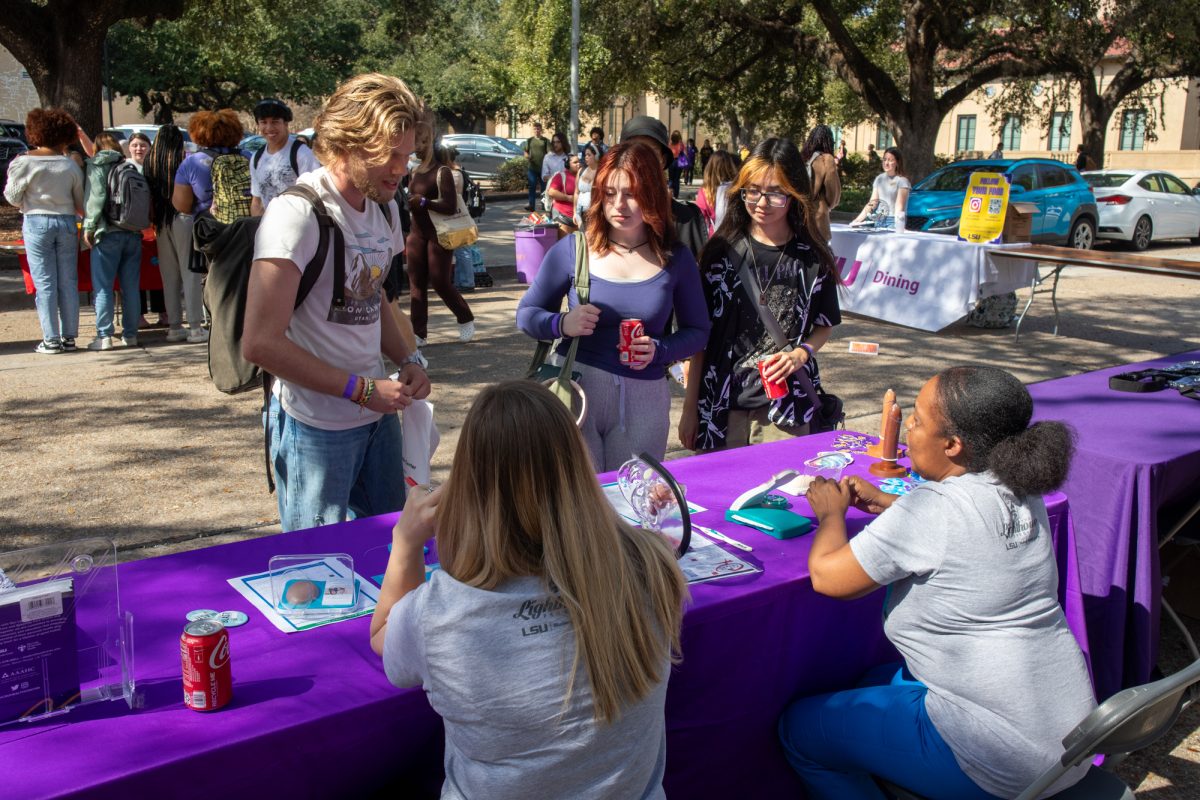Baton Rouge is no longer the city with the highest rate of HIV and AIDS infection.
Baton Rouge’s ranking now falls behind the rates in Atlanta, Georgia, according to data released from an updated report by the Centers for Disease Control and Prevention.
The CDC website reported that urban areas in the U.S. are where most cases of HIV and AIDS are concentrated as of 2012.
Today, more than 1.1 million people within these and surrounding areas are living with HIV, and nearly 16 percent are unaware they have contracted the infection.
Psychology sophomore Kolby Ledbetter said it shocks him that Baton Rouge is ranked so highly.
“It’s not something that really comes to mind when you think of the South,” Ledbetter said.
Ledbetter said if people were made more aware of the numbers, they might be more proactive in protecting themselves.
Katya Ross, director of education and prevention at the Baton Rouge AIDS Society, said the progress in infection rate reduction is because of community education about HIV and AIDS. However, rates still are high because a stigma, or shame, exists among those engaging in sexual activity and contracting the disease, which prevents them from seeking out education.
“[The Baton Rouge AIDS Society] looks at the lack of education around the stigma component, and when we go to speak about HIV in a community that is so close to the Church, we find that people, especially in the African-American community, are drawn away from the education because what they are doing is outside the realm — it does not align — with the Church,” Ross said. “They need the education, but they don’t get it.”
BRAS, the first African-American AIDS society in Louisiana, works to eliminate the stigma through gatekeeping techniques, Ross said.
Employees distribute informational brochures regarding HIV and AIDS to community members daily, hoping to expose the services BRAS and other area agencies have to offer, Ross said.
Some of the services BRAS provides include HIV testing, which is free at the agency.
An estimated 50,000 new HIV infections are contracted per year, according to the CDC report. Those who suffer mostly from these infections are, as Ross suggested, mostly African-Americans,
Ross said the Baton Rouge community needs to continue bringing awareness about the disease if it wants to lower its infection rate statistic.
The rate of people living with HIV is the fourth-highest in Baton Rouge, an estimated 38.1 per 100,000 people.
Last year, Baton Rouge was the third highest.
Ross said that health fairs and having one big event to pass as a “civic duty” won’t be enough.
“We need to hit the pavement every day and saturate the community with information about local testing services, stigma training and HIV 101,” Ross said.
Health promotion coordinator at the University Student Health Center Seirra Fowler said the University also works to improve the conversation and education about HIV and AIDS on campus through its services.
Fowler said attention to HIV and AIDS, especially at a campus in Baton Rouge, is crucial because many people are unaware of the risk that sexual activity can pose.
“The Student Health Center is now offering opt-out HIV testing because we want check-ups on sexually transmitted diseases like HIV and AIDS to be part of students’ standard care,” Fowler said. “And, thankfully, we were able to do this through a partnership we established with the Office of Public Health.”
The partnership between the SHC and OPH has allowed students to receive free, rapid testing since Oct. 1.
Fowler said conventional HIV tests still are available for students for $20 but they cannot provide the test results in 60 seconds like the rapid test can.
“With both practices, we still provide safe sex and condom packets,” Fowler said. “After all, education is key.”
Fowler said the SHC provides additional services like individual consultations to students who have questions about the infection or are worried by their risky behaviors. The SHC also fulfills presentation requests for classes, organizations and residence halls.
The Baton Rouge community has the potential and resources to control its rank, Ross said.
Baton Rouge AIDS ranking falls
November 17, 2014
More to Discover












